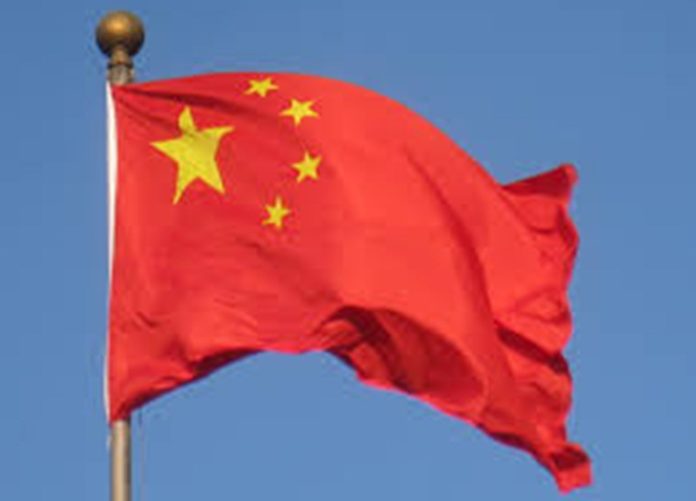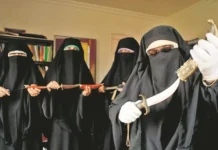COLUMN
Shakespeare once said, “Hell is empty, and all the devils are here.” In the case of the Uyghurs, all the devils are here on the earth to turn East Turkistan into another hell. What kind of hell is it? The answer lies in the meaning of today. Today is the 12th anniversary of the June 5 massacre in 2009. Today may not be a special day for those who have always been living in this very hell for too long, for each day is as worse as hell, with more humiliation and oppression. Yet it is still worth examining the meaning of this day, without which we would not be able to understand the current Uyghur genocide.
Massive protests Urumqi erupted on 5 July 2009 as a response to the Chinese government’s indifference to the Shaoguan incident, a bloody brawl in southern China several days earlier, in which many Uyghurs had been brutally killed and the videos of the crime scenes were circulated online to fuel the global outrage of the Uyghurs. The peaceful protests demanding justice and change were quickly suppressed by the police and military forces with disproportionate measures, resulting in thousands of the Uyghur protestors killed, arrested, and/or disappeared. This was a turning point in Chinese-Uyghur relations as Chinese authorities implemented hard hitting measures and policies against the Uyghurs which lead to even more chaos even though Uyghurs expressed dissent in a peaceful manner.
Uyghur women who took to the streets to seek the whereabouts of their husbands and kids were also suppressed ruthlessly. At the same time, a Chinese mob organized by the Chinese government and disguised as ordinary protestors hunted down the Uyghurs on the streets and in their houses, killing them mercilessly once they were spotted. Their blood-thirsty actions were not put under control for many days by the Chinese government. Instead, they were unleashed as wild beasts to roam around everywhere, carrying machetes and sticks, to terrorize Uyghurs. On this day, hospitals refused to provide medical assistance for the Uyghurs who were either wounded during the protests or fell ill for normal reasons. A three-year-old Uyghur boy, Qutluk, died after being denied medical assistance by a hospital, just because he is a Uyghur.
Today was also a day that an old Uyghur lady, Ms. Tursungul, stood against the Chinese paramilitary forces, bare-handed, unafraid, and alone. Her courage epitomized the Uyghur resistance in a peaceful way while revealing China’s unspeakable cruelty.
On this day and on the following days, a foul image of the Uyghurs was rapidly and widely disseminated by a variety of state propaganda channels. Uyghurs were unilaterally pointed out as terrorists. This dangerous and deceptive designation won the widespread support of ordinary Han Chinese, some of whom chanted in online chat rooms in Chinese that Uyghurs must be killed indiscriminately and mercilessly. It became just a matter of time before the CCP decided to wipe out this ready-made enemy— the enemy of the people, of the party, and of the state. In 2017, the Uyghur genocide started to achieve this blood-dripping goal to eliminate the Uyghurs by incarcerating them in Chinese.
How do you imagine what Uyghur life is like?
Perhaps, the first image, which could come to your mind, is the Gulag concentration camp system and political repression in the Soviet Union described by Aleksandr Solzhenitsyn. The Gulag Archipelago was a prison camp where conditions were awfully bad, and the prisoners were forced to work extremely hard. The Gulag system was, at that time, outside of Soviet society, as a separate world, to where the so-called criminals were sent based on bogus criminal charges to look legitimate. However, all of Uyghur society has already become a Gulag system, into which all Uyghurs have been thrown indiscriminately and ruthlessly. Furthermore, there is no difference between the criminals and non-criminals in this system—all Uyghurs are considered by Chinese authorities as criminals. In the Soviet Gulag system, the prisoners still entertained a certain level of freedom—at least they could think freely and discuss some topics with each other. However, in the Uyghur Gulag system, because all communication is heavily surveilled and censored, there is no private talk among the Uyghurs at all. Even a couple cannot talk privately among themselves. Surveillance has reached such an alarming level, where the Uyghurs feel a sense of dread about their own thoughts, for fear of them being exposed culminating in self-censorship.
In the Uyghur Gulag system, all Uyghurs are systematically turned into objects—they are totally objectified. Their mind is forced to be made observable through forced confessions, brainwashing, and their behavior is observed through the omnipresent gaze of security cameras with a face-recognition capabilities. This is the most chilling aspect of the objectification (de-humanization) of the Uyghurs under CCP rule. In the Soviet Gulag system, the prisoners had families, and the children of the prisoners were still considered as citizens of the Soviet Union. Their children could lead a normal life, even if both or either of their parents were considered as Gulag prisoners. However, in the Uyghur Gulag system, the children are separated from their parents and subsequently have no say regarding the future of their children. Even breastfeeding children were separated from their parents and taken to unknown places. As such, for the Uyghurs, the Soviet Gulag system could be enviably better than the system, in which they are losing everything—their land, property, culture, language, religion, life, children and, above all, their thoughts.
Indeed, there is a lot of oppression in many parts of the world. It is true that the act of oppression has never ended since the dawn of civilization, due to the reason that people in power or in search of power place restrictions on groups of people that they deem a threat to their goals. In the end, oppression is driven by a desire for more power by subjugating others to political, economic, cultural, or social degradation, resulting from structures of domination and subordination and, correspondingly, ideologies of superiority and inferiority. In this sense, for many, the oppression, to which the Uyghurs are being subject as a native people of East Turkistan, is nothing new or special.
It is possible that some people can be quick to associate the oppression of the Uyghurs to that of Palestinians, claiming that both nationalities are suffering from the same kind of oppression. We should not forget that the Palestinians have their own land, however smaller it has gradually become, their global support channels, and collective identity. They can, at least, protest Israeli mistreatment and, more importantly, they can curse the agents of oppression in their prayers in their mosques. However, the Uyghur oppression is far graver and unprecedented than any other oppression that humanity has ever seen in history—the Uyghurs are forced to deny that they are oppressed; instead, they are expected to praise the oppressors by singing and dancing that they are the guarantor of their happiness, “confessing” that they deserve this treatment for being Uyghur. They are very free and happy that they are eternally thankful to the CCP for its kind-heartedness and good intentions. No absurdity can match the absurdity of Uyghur life. This hell is as pathetically evil as you could imagine.
Even though the Uyghur oppression has been continuing since the occupation of East Turkistan by the PLA in 1949, it has always failed to attract the urgent attention of the world. While the Urumqi massacre in 2009 was reported by many media channels around the world, they relied, unanimously, on data provided by Chinese government sources, regardless of the simple fact that this very government itself was the oppressor and the cause of this carnage. No serious attempt was made to get this information from the Uyghurs in exile, at least for the sake of natural justice. As a result, the number of the casualties was reported to be 197, which was far lower than the actual number of the casualties, which, according to some independent sources, could be at least 30, 000. According to one of the Han Chinese police officers, this figure is more than 17,000. Likewise, there is a great deal of difference in the reported number of Uyghurs in Chinese concentration camps.
Today, it is common for people to draw similarities between China’s concentration camps and Nazi concentration camps. However, there were temples in Nazi concentration camps. We see in films that the prisoners in Nazi camps could gather around and talk amongst themselves. In Chinese camps, Uyghurs cannot even speak a word of the Uyghur language to the person next to them without being severely punished. If Uyghur detainees were to be placed in Nazi camps right now, a sense of relief and freedom would come over them.
Currently, there is a growing voice asking for the UN and other agencies to form a delegation to visit East Turkistan to see what is happening on the ground. However, like Nazi Germany, who deceived the Red Cross by turning the hellish environment of concentration camps into rosy gardens in 1943, China is quite good at hiding its own crimes against the Uyghurs and other Turkic nationalities. History tells us that a repressive regime, like Nazi Germany, is and will never be transparent on its genocidal behaviour, unless it is challenged with the undeniable evidence at an international court.
Therefore, to avoid facing international justice in future, China has already built a crematorium next to some of the concentration camps in East Turkistan to erase the traces of crimes against humanity. The Nazis killed the Jews in gas chambers and cremated them later. Likewise, China is killing Uyghurs and cremating them secretly. Therefore, it is highly doubtful that the international community will be able to know the reality of the murderous destruction of Uyghur society.
During this chilling genocidal process, we, the Uyghurs, call upon the international community to stand up for us, because standing up for us is standing for justice and for the dignity of humanity. We remind them of the high moral cost they will pay for their silence and inaction over the Uyghur genocide. Silence is violence when genocide is happening. Those who are now afraid to take a stance against China over this crime, will become its victims eventually. The Uyghur genocide is a litmus test for the world—if China goes ahead with what it is doing without consequences, it sets a precedent for other authoritarian or semi-authoritarian regimes around the world to follow—more carnage will ensue, and more innocent blood will be shed. Joining the fight to stop the Uyghur genocide is the duty of humanity but also a favour to the rest of the world because of China’s cruel ambition to rule everyone.
(Article written by President of East Turkistan Government in-Exile Ghulam Osman)











